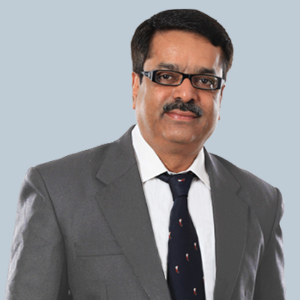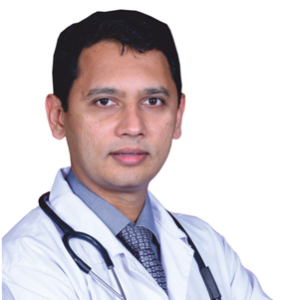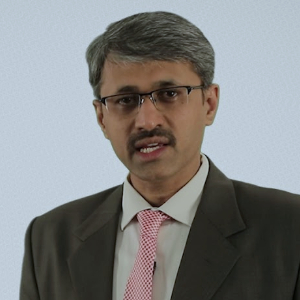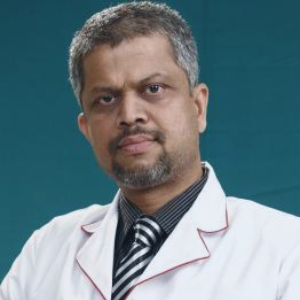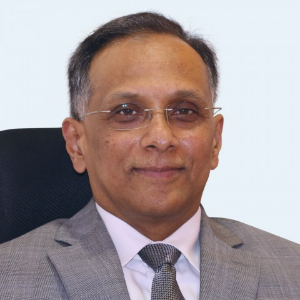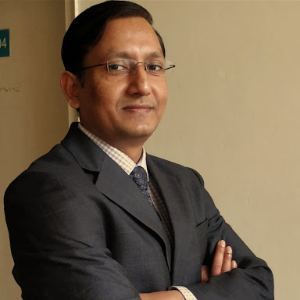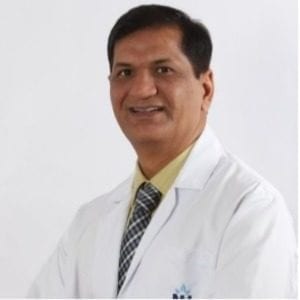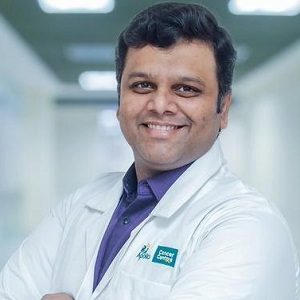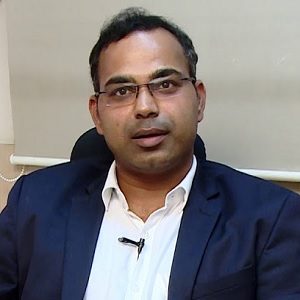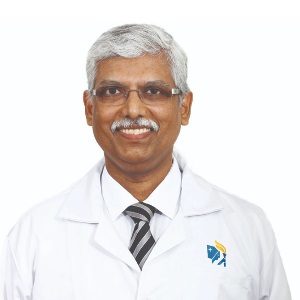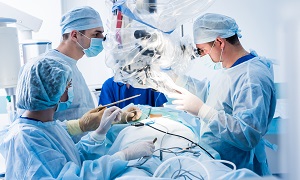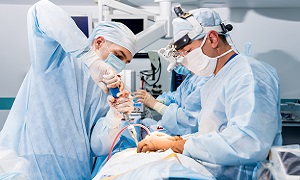Best Spinal Cord Stimulator Implant Doctors in India
- Neurosurgeon, Mumbai, India
- Over 25 years’ experience
- Fortis Hiranandani Hospital Vashi Mumbai
Profile Highlights:
- Dr. Ashok Hande is a renowned neurosurgeon in Mumbai who holds the credit for 300 AVMs, 1400 skull base tumor surgeries, 3600 surgeries for cranial and spinal trauma, 1200 lumbar prolapsed intervertebral disc surgeries, 800 cerebral aneurysms, and more than 100 microvascular decompressions.
- He holds an experience encompassing 25+ years and holds the credit for pioneering neurosurgery in Mumbai by bringing in new and advanced neurosurgical procedures for brain and spine surgery.
- Neurosurgeon, Bengaluru, India
- Over 22 years’ experience
- Gleneagles Global Hospital Bengaluru
Profile Highlights:
- Dr. Madhusudan H V is an expert Neurosurgeon in South India with 22+ years of experience in neuro and spine surgery.
- With a specialization in minimally invasive neurosurgeries, Dr. Madhusudan holds the credit for more than 7000 neurosurgeries. He also finds interest in endoscopic interventions and frameless navigations.
- Neurosurgeon & Spine Surgeon, Bengaluru, India
- Over 15 years’ experience
- Gleneagles Global Hospital Bengaluru
Profile Highlights:
- Dr. Praveen K S is a highly qualified neurosurgeon with over a decade of experience in handling all kinds of neurological diseases and disorders.
- He specializes in Pediatric Neurosurgery, Neuro-Oncology, Endoscopic neurosurgery, Aneurysms, and Neuro- Trauma and has performed over 4000 neurosurgeries in his career.
- Neurosurgeon & Spine Surgeon, Mumbai, India
- Over 20 years’ experience
- Wockhardt Hospital Mumbai
Profile Highlights:
- Dr. Rahul Modgi is a highly established neuro and spine surgeon in Mumbai specializing in all types of brain and spine surgeries.
- Dr. Rahul Modgi’s name has been recorded in the Limca Book of Records in 2014 when he removed the heaviest iron rod from the brain of a 17-year-old patient. He has also performed various other risky surgeries for which he has greatly appreciated.
- Neurosurgeon, Bengaluru, India
- Over 30 years’ experience
- Fortis Hospital Banerghatta Bengaluru
Profile Highlights:
- Dr. Rajakumar V Deshpande is a renowned Neurosurgeon in Bengaluru. He performed the first pedicle screw fixation surgery for a spine injury in Bangalore.
- Dr. D V Rajakumar specializes in endoscopic neurosurgeries and has performed some of the most complex brain and spine surgeries through the endoscopic approach. His other areas of interest include minimally invasive neuro surgeries, management of cerebrovascular diseases, and brain tumor surgeries.
- Orthopedic & Spine Surgeon | Max Hospital, Saket, New Delhi, India
- 14+ Years Experience
- Max Super Specialty Hospital, Saket, New Delhi
Profile Highlights:
- Dr. Om Prakash Gupta is a reputed Spine Surgeon in India.
- He is currently functioning as a Consultant – Orthopedics & Spine at Max Smart Super Speciality Hospital, New Delhi
- He has over 14 years of experience.
- Orthopedic and Spine Surgeon, Gurugram, India
- Over 25 years’ experience
- W Pratiksha Hospital
Profile Highlights:
- With over 25 years of experience, Dr. Rajesh Kumar Verma can be generally considered a boon for people suffering from complex, bone, joint, or spine disorders.
- Currently known as one of India’s leading spine experts in India, Dr. Rajesh Kumar Verma performs as many as 50 surgeries in a month. The types of surgeries he performs include all types of spine surgeries, joint replacements, as well as complex trauma surgeries.
- Orthopedic Surgeon and Spine Surgeon, Chennai, India
- Over 12 years’ experience
- Apollo Cancer Centre
Profile Highlights:
- Dr. Madhu Kiran Yarlagadda is an orthopedics – consultant specializing in Joint and spine surgery and works at the Apollo hospitals of Chennai.
- Dr. Madhu Kiran Yarlagadda’s team carried out Robotic Spine Surgery for the first time in South-East Asia and performed Endoscopic Transforaminal Spine Surgery in Chennai.
- He treats spine diseases and has the facilities and expertise to perform robotic spine surgery. Along with that, he treats patients with joint and other orthopedic issues.
- Spine Surgeon and Orthopaedic Surgeon, Chennai, India
- Over 18 years’ experience
- Apollo Hospitals Greams Road
Profile Highlights:
- Dr. Muralidharan Venkatesan is a consultant in spine surgery from Chennai.
- He provides comprehensive cervical (neck), thoracic (upper back), and lumbosacral (lower back) conditions treatment.
- Dr. Venkatesan pursued MBBS, MRCS, and a fellowship FRCS and shifted his specialization to spinal surgery.
- Dr. Venkatesan has his papers published in several journals.
- Orthopedic Surgeon and Spine Surgeon, Chennai, India
- Over 23 years’ experience
- Apollo Hospitals Greams Road
Profile Highlights:
- Dr. Ravi Venkatesan is a spine surgery specialist from Chennai, Tamil Nadu.
- His experience in spine surgery, orthopedics, and spine deformity surgery date back nearly 23 years.
- Dr. Venkatesan has performed several surgeries and has been an active member of various orthopedics groups.
- Many organizations have recognized his service and have awarded him for his dedication.
Best Spinal Cord Stimulator Implant Hospitals in India
Hospital Highlights:
- Apollo Hospitals is a private healthcare group in India, with its headquarters based in Chennai. Established in 1983 by Dr. Prathap C. Reddy, the group offers a wide range of medical treatments and services across various specialties.
- It is renowned for emphasizing innovation and utilizing cutting-edge medical technologies into patient treatment.
- Known as India’s first corporate hospital, Apollo Hospitals is often credited for pioneering the private healthcare revolution in the country.
- With clinics and hospitals located all throughout India, Apollo Hospitals is a nationwide healthcare organization. Its presence can also be found in foreign countries.
- Preventive health examinations, medical and surgical treatment, and diagnostic centres are just a few of the services that the Apollo group provides.
- The group has several centres of expertise, including Cardiac Sciences, Neurosciences, Orthopedics, Emergency Care, Cancer Care, and Organ Transplantation.
- City: Chennai, India
Hospital Highlights:
- RIMC is a multi-specialty hospital in a sprawling area of 36 acres located in Chromepet, Chennai, Tamil Nadu, India.
- The facility has 450 beds including 130 critical care beds, 9 operating rooms, modern reference laboratories and radiology services, and is conveniently located near road, rail and air transportation.
- RIMC is led and managed by world-renowned physicians committed to healthcare.
- RIMC offers the broadest range of clinical care, education, and research. The hospital offers state-of-the-art technology and modern treatment facilities designed to provide health care at an affordable cost.
- Rela Institute is driven by patient needs, comfort and confidence.
- City: New Delhi, India
Hospital Highlights:
- Fortis Hospital in Shalimar Bagh is a multi-super specialty hospital that strives to provide world-class patient care by leaving no stone unturned.
- Fortis, Shalimar Bagh, with 262 beds and a 7.34-acre footprint, provides the best level of medical care through its team of doctors, nurses, technicians, and management professionals.
- City: Bengaluru, India
Hospital Highlights:
- Established in 2007, the Apollo Hospitals Bangalore is a 300-bed multispecialty hospital situated in Bannerghatta Road, Bangalore.
- Equipped with the state-of-the-art technology, it is a leading hospital dedicated to providing healthcare needs to patients with compassion and expertise.
- It is the first hospital to have completed the highest number of Robot Assisted Heart Surgeries in India.
- Over the years, it has successfully conducted some of the rarest medical procedures such as spinal angiolipoma excision, autologous chondrocyte implantations, and tibial tuberosity shift with MPSL reconstruction.
- The Apollo Hospitals Bangalore has the reputation of performing the greatest series of airway stents in the country.
- Additionally, the hospital is known for providing comprehensive treatment in specialties such as gastroenterology, urology, gynecology, oncology, colorectal surgery, etc.
- The “The Minimal Access Surgery Centre” (MASC), one of Apollo Hospitals, Bangalore’s premier Centres of Excellence, is devoted to the use of minimally invasive surgical procedures.
- In 2013, THE WEEK-A C Nielsen, Best Hospital Survey ranked Apollo Hospitals Bangalore as the 2nd best multi-speciality hospital in Bangalore.
- City: Mumbai, India
Hospital Highlights:
- Gleneagles Global Hospital The 450-bed facility comprises of 17-stories, housing state-of-the-art infrastructure, and advanced medical care facilities.
- The hospital offers end-to-end clinical, surgical, and diagnostic services. It is equipped with a team of eminent medical professionals aided by qualified nurses and medical staff
- The Hospital offers advanced Endoscopic procedures, Hepatobiliary and Liver Surgeries, Surgical and Medical Gastroenterology, Bariatric Surgery, and Robotic surgery.
- The hospital is a center of excellence for Orthopedics, Joint Replacement, Knee Replacement, and Hip Replacement surgery.
- City: Hyderabad, India
Hospital Highlights:
- CARE Hospitals were established in the year 2000, by CARE Group.
- The multispecialty hospital has 435 beds, including 120 critical care beds, with an annual inflow of 180000 outpatients and 16,000 in-patients.
- The hospital provides specialty medical services in Cardiology, Cardiothoracic Surgery, Pediatric Cardiology, Pediatric Cardiothoracic Surgery, Neurology, Neurosurgery, Nephrology, and Urology.
- The hospital has the first dual source, 128 slice CT scanner (for high precision cardiac imaging) – the first of its kind in south India.
- The hospital offers a wide range of accommodation facilities for the convenience of its varied patient base, ranging from general wards to super deluxe rooms.
- City: Mumbai, India
Hospital Highlights:
- Fortis Hospital in Mulund is a 315-bed multi-speciality tertiary care hospital with five JCI accreditations that offers a wide variety of diagnostic and treatment services. The Fortis Hospital in Mulund delivers patient-centred treatment with cutting-edge technology, highly skilled and experienced surgeons, and paramedical staff.
- This institution houses Maharashtra’s largest multi-organ transplant centre. It is also the first heart transplant centre in western India to conduct 100 or more consecutive heart transplants in under four years. It is the only hospital in the city to have multi-organ transplants and has handled the youngest patient for angioplasty. Fortis Hospital Mulund now boasts the first advanced surgical robot in central Mumbai.
- Cardiology and heart surgery, urology, nephrology, neurosciences, orthopaedics, digestive care, emergency and critical care, and maternity care are among the services provided by the hospital.
- City: New Delhi, India
Hospital Highlights:
- Manipal Hospitals, Dwarka, is a super-specialty hospital in Dwarka, New Delhi, which is a part of Manipal Hospitals Group.
- The hospital aims to provide the best treatment on par with international standards at a fraction of the cost.
- Equipped with 380 beds, the hospital is also one of the new age hospitals which are equipped fully with state-of-the-art infrastructure, cutting-edge technology as well as the latest and advanced clinical practices. The hospital also has 13 modular Operation theatres with 118 beds which are solely meant for critical care.
- The hospital comprises internationally acclaimed doctors and highly professional and experienced hospital and medical staff who are able to provide preventive, therapeutic, and diagnostic services all under one roof.
- City: Chennai, India
Hospital Highlights:
- Located in Chennai, India, MGM Healthcare is a top multispecialty hospital that provides all medical services under one roof.
- Since its founding in 2019, MGM Healthcare has quickly become a leading national referral centre, creating several innovative flagship initiatives.
- MGM Healthcare combines next-generation medical and digital technologies to provide better patient results.
- With 12 centres of excellence, more than 400 inpatient beds, 100 intensive care unit beds, and 24/7 emergency care, MGM Healthcare leaves no chance in redefining the patient experience in Chennai.
- MGM Healthcare boasts 250+ expert doctors across 30+ departments, including Cardiology, Pulmonology, Neurology, Obstetrics & Gynaecology, and more.
- They house 12 specialized Centres of Excellence, including Neurosciences, Orthopaedics, and Multi-Organ Transplantation.
- Their team of doctors, nurses, and paramedics works together to give every patient individualized treatment.
Hospital Highlights:
- Lilavati Hospital & Research Centre is India’s premier multi-speciality tertiary care hospital and has been recognised as a global medical excellence centre.
- Lilavati Hospital & Research Centre has built an unrivalled level of trust with its patients over the years, thanks to a solid foundation that comprises cutting-edge facilities, the best medical competence, research, education, and charity endeavours.
- The hospital is quite proud of the fact that it now serves patients from all kinds of backgrounds, not just from the United States but from all around the world.
- The hospital has a total of 323 beds, one of the largest Intensive Care Units (ICUs), 12 Operation Theatres with modern amenities, over 300 consultants, and almost 1,800 personnel.
Spinal Cord Stimulator
Spinal cord stimulator is an implanted device that can deliver low levels of electric signals directly into the spinal cord, which helps to relieve pain. Spinal cord stimulation is often used after nonsurgical pain treatment options fail to provide sufficient relief. Spinal cord stimulators require two procedures for testing as well as implanting the device, the trial and the implantation. It can help one to improve their overall quality of life and it also reduces the need to use any kind of pain medicines. It is typically used with other pain management treatments.
Purpose
Spinal cord stimulation is used if nonsurgical pain treatment options fail to provide enough relief. Spinal cord stimulators are used for treating or managing various types of chronic pain, which includes:
- Back pain, that continues even after surgery (failed back surgery syndrome)
- Post-surgical pain
- Heart pain (angina) untreatable by other means
- Arachnoiditis (painful inflammation of the arachnoid)
- Injuries to the spinal cord
- Peripheral vascular disease
- Nerve-related pain (which can include severe diabetic neuropathy and cancer-related neuropathy from radiation, surgery or chemotherapy)
- Complex regional pain syndrome
- Pain after an amputation
- Visceral abdominal pain and perineal pain
Spinal cord stimulation can help you improve your overall quality of life and sleep as well as reduce the need for pain medicines. It can be used along with other kinds of pain management treatments, which include medications, physical therapy, exercise and relaxation methods.
Spinal Cord Stimulator Types
Spinal cord stimulators can be of various types:
Conventional implantable pulse generator (IPG), a spinal cord stimulator which is operated by battery. During the operation, the batter is placed in the spine. When it runs out, the battery needs to be replaced with a different surgery. This device is usually a good choice for people who are experiencing pain in just one body part due to its lower electrical output.
Rechargeable IPG functions similarly to the conventional device. Its difference is that the battery can be recharged without the need for another surgery. As the energy source is rechargeable, these stimulators are able to put out more electricity. This option is better for people experiencing pain in the lower back or in one or both legs, as the signal can reach further.
Radiofrequency stimulator uses a battery located outside the body. Due to newer designs and better technology, this stimulator is used quite rarely today. It has rechargeable batteries and is similar to the rechargeable IPGs. It is a better option for people with pain in the lower back and legs due to the device’s power.
Your surgeon will be explaining how to operate the device as well as adjust the intensity of the electrical signal, which all three types of stimulators are able to support. Different stimulator settings are required for different body positions. One setting can work better for sitting and another one for walking.
In order to help you easily access the settings which are used mostly, most devices allow doctors to save two or three preset programs. Some newer devices feature several waveforms for electricity delivery, which includes high frequency, burst as well as high-density stimulation.
Procedure
The procedure for spinal cord stimulation requires two steps to test and implant the device: the trial and the implantation. It is usually performed on an outpatient basis.
Spinal Cord Stimulator Trial
The first step is considered a trial period. In this step, your surgeon will implant a temporary device which will be testing out. You will be guided by a particular kind of X-ray called fluoroscopy. Then your surgeon will carefully insert the electrodes in the epidural space of the spine. The location of your pain affects where these electrodes will be placed along the spine. Your surgeon may ask for your feedback during the procedure to position the electrodes in the most effective way.
This trial procedure usually requires just one incision in your lower back for placing the electrodes. The generator/battery will be outside your body, typically on a belt which you will be wearing around your waist.
For around a week, you will evaluate how well the device can reduce your pain. The trial can be considered a success if you experience at least a 50 percent reduction in your pain level.
However, if it is unsuccessful, the wires can be removed quite easily in the clinic without causing any damage to the spinal cord or nerves. If successful, then surgery will be scheduled to implant the device permanently.
Spinal Cord Stimulator Implantation
Next comes the permanent implantation procedure, where the generator will be placed underneath your skin and the trial electrodes will be replaced with sterile electrodes. Unlike the trial ones, these will need to be anchored by sutures so that their movement can be minimized.
Typically around 1-2 hours can be required for the implantation.
First local anesthesia will be administered, after which your surgeon will make one incision for holding the generator and another one for inserting the permanent electrodes. Fluoroscopy will also be used in order to determine where the electrodes need to be placed.
Once the generator and the electrodes are connected to and running, your surgeon will be closing the incisions.
Your surgeon might provide sedation so that you remain comfortable. He/she might also ask for your feedback during the placement of the electrodes.
Recovery
Once the anesthesia has worn off, most patients are able to leave the same day as their procedure. For several days after your surgery, your incisions can cause some pain. Dressings will be placed over your incision sites and they will remain for about 3 days. The incisions should heal within 15-30 days after the surgery.
Your doctor will next discuss your recovery plan with you and might recommend you lighter activity for around 2 weeks after the surgery.
After your surgeon approves you for any kind of regular activity, you will be able to return to work and drive again.
Risks and complications
Although rare, spinal cord stimulator surgery has few risks and complications. Few patients might experience any of the following:
- Bleeding
- Infection, which can occur in the first 15-60 days
- Device migration (i.e. the electrodes moving from their original location which can make the stimulator unable to block pain as effectively). This might require a follow-up surgery so that the electrodes can be put back in their proper spot.
- Device damage (e.g., sometimes, the stimulator can break due to a fall or intense physical activity).
- Dural puncture- The dura mater surrounds your spinal cord. Spinal cord stimulators are inserted in the epidural space, the area which is just outside your dura mater. If a needle or electrode goes too deep and pierces it, this can lead to cerebrospinal fluid leaking out. These punctures can lead to severe headaches.
- Spinal cord trauma- Although it is rare, spinal cord stimulator insertion can sometimes lead to nerve injury and sometimes even paralysis.
Before going through the operation, it is best to discuss with your doctor regarding the benefits and the risks of the procedure.

